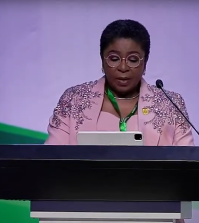Mexico must up efforts to prevent corruption in $9bn airport project, says OECD

The Government of Mexico must do more to prevent corruption within the state-owned corporation delivering a new $9bn airport in the country’s capital Mexico City, a new report by the OECD has said.
The New International Airport of Mexico City (Nuevo Aeropuerto Internacional de la Ciudad de México, NAICM) – one of the three largest airport infrastructure projects worldwide – is being managed by Airport Group of Mexico City (Grupo Aeroportuario de la Ciudad de México, GACM), in which the government owns a majority stake.
In its report Effective Delivery of Large Infrastructure Projects: The Case of the New International Airport of Mexico City published on Friday, the OECD says that “infrastructure projects are particularly prone to corruption” and that the construction of the Mexico’s new airport “is not exempt from this risk.”
Despite measures by the Mexican Government in early 2015 to promote integrity in the public sector and reinforce the fight against corruption, more needs to be done within GACM, it says.
The report calls for a “comprehensive strategy to prevent corruption and mismanagement during the different phases of the project” and says “GACM could better promote openness and enhance its culture of integrity by setting common standards and norms of conduct, investing in training and guidance.”
GACM could improve the transparency of all its procurement activities by “proactively publishing on its webpage all the relevant information such as annual procurement programmes, tender procedures (solicitation documents, minutes of the clarification meetings, and of the opening of tenders), contract awards history, modification to contracts, and formal complaints,” it adds.
The report also argues that an effective communications strategy is key to the project’s success.
“A common weakness in many projects is the lack of a coherent and effective communications strategy linking the needs, expectations, and concerns of the project’s different stakeholder interests,” the paper states, adding that unlike most government agencies, GACM’s organisational structure does not currently include a dedicated communication role.
A comprehensive strategy is “still needed to change negative perceptions among several stakeholders,” it says.
With NAICM at the core of the current administration’s (2012-18) infrastructure plan, the report says that the project’s “successful development would greatly improve the competitiveness of the country and the wellbeing of its citizens.”
GACM decided to phase the main construction activities into a series of 21 procurement packages.
The new airport, which was first announced by Mexico’s president Enrique Peña Nieto in September 2014, is expected to be inaugurated in October 2020.





















